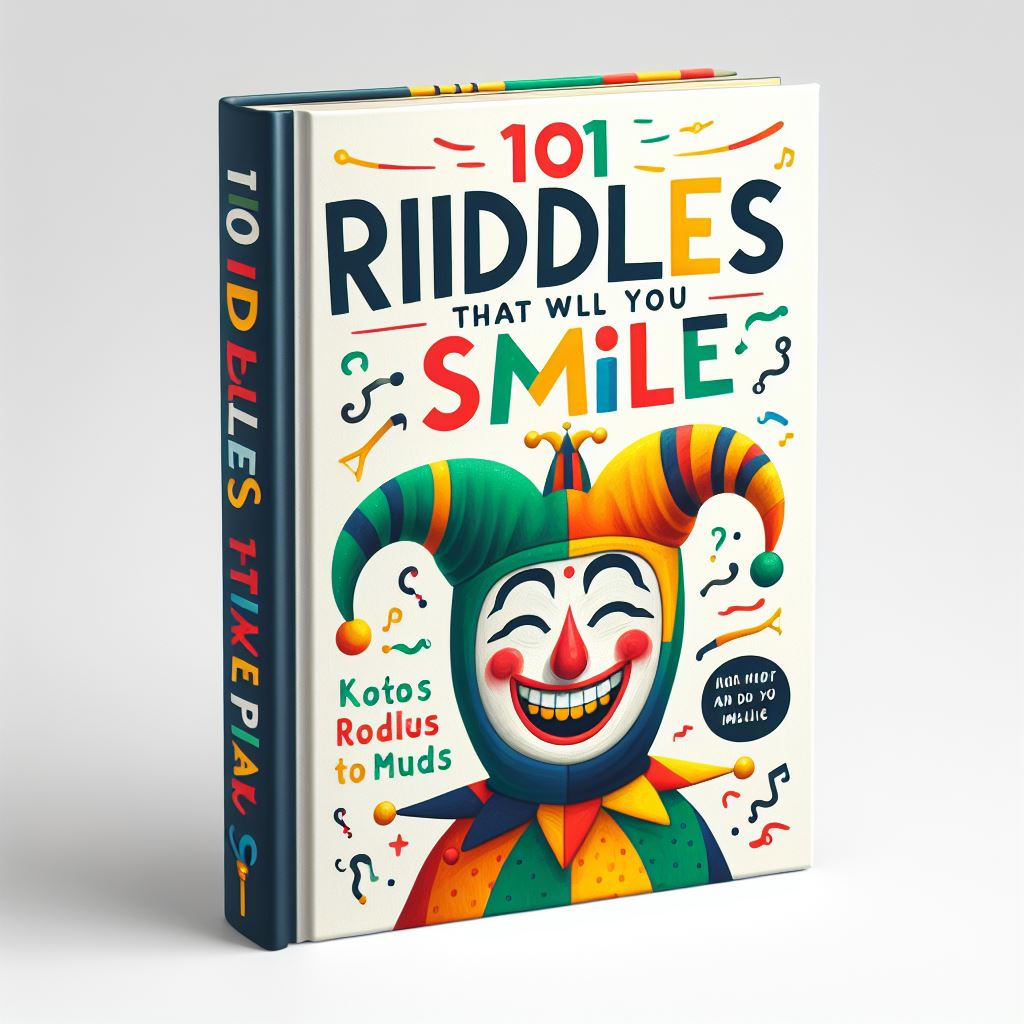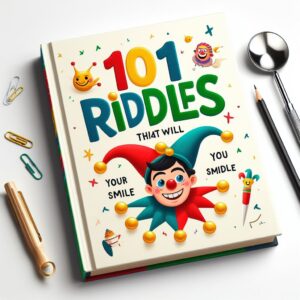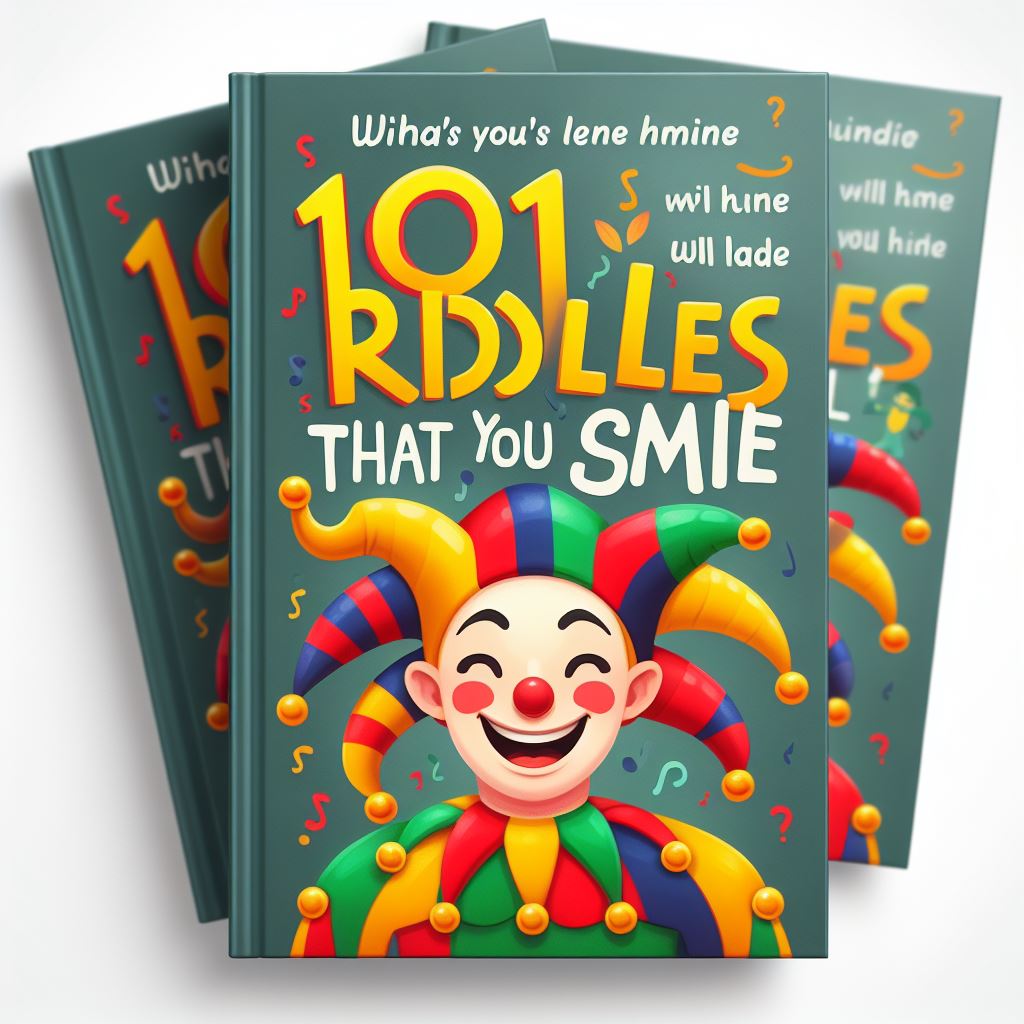Riddles have fascinated people of all ages for centuries, captivating minds with their clever wordplay and elusive solutions. From ancient civilizations to modern-day societies, the allure of riddles remains unchanged, offering entertainment, mental stimulation, and even educational benefits. In this article, we’ll delve into the world of riddles, exploring their history, significance, and enduring appeal.
The Intriguing World of Riddles
Riddles, often described as brain teasers or puzzles, are short statements or questions that require creative thinking to solve. They typically involve wordplay, double meanings, or clever twists that challenge the reader to think outside the box. From simple conundrums to complex enigmas, riddles come in various forms and have been a part of human culture for millennia.
Exploring the Origins of Riddles
The origins of riddles can be traced back to ancient civilizations, where they were used as a form of entertainment and intellectual exercise. In cultures around the world, riddles were woven into folklore, mythology, and literature, showcasing the ingenuity and creativity of their creators. Whether inscribed on clay tablets, recited in oral traditions, or written in ancient manuscripts, riddles have left their mark on history.
The Significance of Riddles in Society
Riddles serve multiple purposes in society, beyond mere entertainment. They encourage critical thinking, problem-solving skills, and lateral thinking, making them valuable educational tools. By grappling with riddles, individuals develop cognitive abilities, linguistic proficiency, and deductive reasoning skills. Moreover, riddles foster a sense of camaraderie and social interaction, as people come together to unravel their mysteries.
The Appeal of Riddles Across Ages
Despite the passage of time, the appeal of riddles remains timeless. Children delight in the challenge of solving riddles, relishing the opportunity to outsmart their peers and elders. Adults, too, find enjoyment in the mental exercise offered by riddles, appreciating their ability to stimulate the mind and spark creativity. Whether shared around a campfire, exchanged as icebreakers, or pondered over in solitude, riddles continue to captivate audiences of all ages.
The Art of Crafting and Solving Riddles
Cracking the Code: Unraveling the Mystery of Riddles”
“Puzzling Pleasures: Exploring the World of Riddles”
“Riddles Revealed: Unlocking Secrets of the Mind”
“Mind Games: The Psychology Behind Riddles”
“Journey into the Unknown: Adventures with Riddles”
“Riddle Me This: A Journey of Discovery and Intrigue”
“Beyond Words: The Language of Riddles”
“Mysteries Unveiled: The Magic of Riddles”
“The Riddler’s Handbook: Mastering the Art of Puzzles”
Crafting a compelling riddle requires a delicate balance of wit, language mastery, and creativity. A well-crafted riddle should be challenging yet solvable, engaging the reader’s intellect while providing a satisfying solution. Here are some tips for creating and solving riddles:
Crafting Riddles:
- Wordplay: Utilize puns, homophones, and double entendres to add depth to your riddle.
- Misdirection: Lead the reader down the wrong path with cleverly disguised clues and red herrings.
- Clarity: Ensure that your riddle is concise and easy to understand, avoiding unnecessary complexity.
- Creativity: Think outside the box and experiment with unconventional themes and structures.
- Testing: Share your riddle with friends or family to gauge its difficulty level and effectiveness.
Solving Riddles:
- Read Carefully: Pay close attention to every word and phrase in the riddle, as each may hold a clue.
- Think Laterally: Don’t be afraid to consider unconventional interpretations or alternative meanings.
- Use Context: Consider the context of the riddle and any cultural or historical references that may be relevant.
- Trial and Error: Experiment with different interpretations and solutions until you find one that fits.
- Collaborate: Seek help from others and engage in brainstorming sessions to unravel the riddle’s mystery.
Conclusion: Embracing the Enigma of Riddles
In conclusion, riddles occupy a unique place in human culture, offering a blend of entertainment, intellectual challenge, and social interaction. Whether shared among friends, used in educational settings, or enjoyed as a solo pastime, riddles enrich our lives in myriad ways. So the next time you encounter a perplexing riddle, embrace the challenge, sharpen your wits, and revel in the thrill of unlocking its secrets.
As the ancient tradition of riddles continues to endure, let us celebrate the timeless appeal of these enigmatic puzzles and marvel at the boundless creativity of the human mind.
FAQs (Frequently Asked Questions)
1. What makes a good riddle? A good riddle should be challenging yet solvable, incorporating clever wordplay, misdirection, and creativity. It should engage the reader’s intellect and provide a satisfying solution.
2. Are riddles only for entertainment, or do they have other benefits? While riddles are often enjoyed for entertainment purposes, they also offer numerous cognitive benefits. They encourage critical thinking, problem-solving skills, and linguistic proficiency, making them valuable educational tools.
3. How can I improve my riddle-solving skills? Improving your riddle-solving skills involves practicing critical thinking, lateral thinking, and deductive reasoning. Engage with a variety of riddles, experiment with different solving strategies, and collaborate with others to expand your problem-solving repertoire.
4. Can riddles be culturally specific? Yes, riddles can be culturally specific, often incorporating language, customs, and traditions unique to a particular culture or community. Exploring riddles from diverse cultures can offer insight into different worldviews and perspectives.
5. Are there any resources available for crafting and solving riddles? Yes, there are numerous resources available for crafting and solving riddles, including books, websites, and online communities dedicated to riddle enthusiasts. These resources often provide tips, techniques, and examples to inspire creativity and skill development.
6. Can riddles be used in educational settings? Yes, riddles are frequently used in educational settings to enhance critical thinking, language skills, and creativity. Teachers may incorporate riddles into lesson plans across various subjects, fostering engagement and active learning among students.
7. Are there different types of riddles? Yes, there are several types of riddles, including enigmas, conundrums, logic puzzles, and wordplay riddles. Each type offers a unique challenge and requires different problem-solving strategies to solve.
8. How can I create my own riddles? To create your own riddles, start by brainstorming ideas, experimenting with wordplay and double meanings, and refining your riddle through feedback and testing. Practice and persistence are key to crafting compelling and engaging riddles.
9. Are there any famous historical riddles? Yes, there are many famous historical riddles that have intrigued and challenged people throughout history. Some examples include the riddles of the Sphinx from Greek mythology, the riddles of the Exeter Book from Anglo-Saxon literature, and the riddles of the ancient Chinese philosopher Confucius.
10. Can riddles be enjoyed by people of all ages? Yes, riddles can be enjoyed by people of all ages, from children to adults. They offer a timeless appeal, stimulating curiosity, creativity, and camaraderie among individuals of diverse backgrounds and interests.





